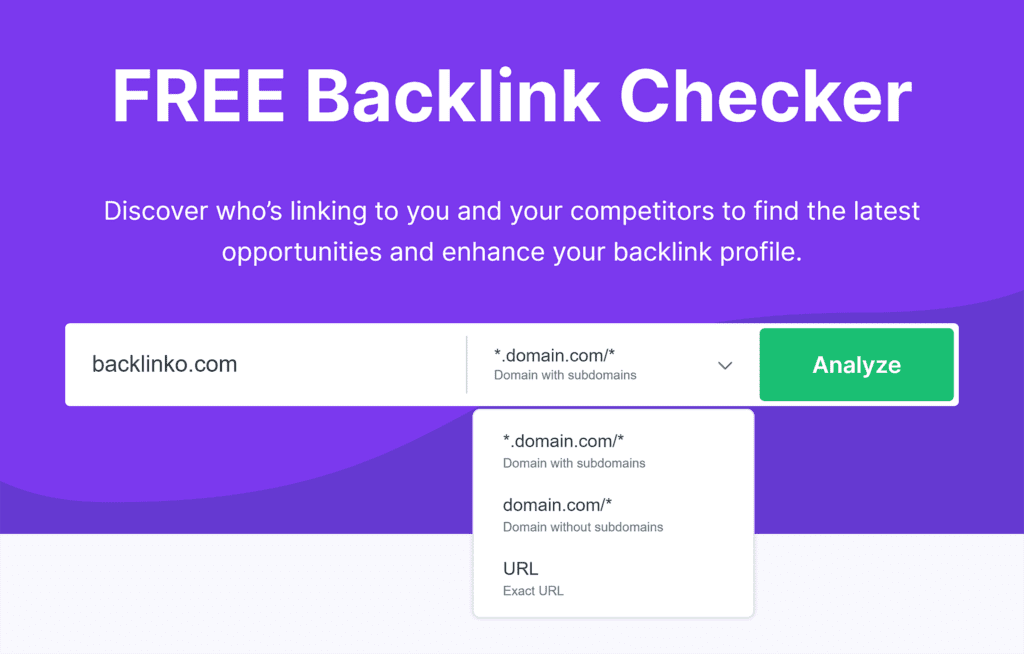How to Index Backlinks: The Ultimate Step-by-Step Guide
Backlinks are essential for any website trying to rank well in search engines like Google. Backlinks are incoming links from other websites to your site, and they help search engines understand the authority and relevance of your content.
But just having backlinks isn’t enough — you need to properly index those backlinks so that search engines can find them and factor them into your site’s ranking. Here is an ultimate step-by-step guide on how to properly index backlinks to maximize their SEO value.
Why Indexing Backlinks is Important
When another site links to a page on your website, search engines like Google will crawl that backlink and add it to their index. This tells Google that your content is valuable and authoritative enough for other sites to link to.
However, search engines don’t always crawl every page on the internet all the time. If your backlinks are on pages that don’t get crawled regularly, Google might not find them and add them to its index.
This is why proper backlink indexing is crucial — you want to make sure search engines can easily discover all your backlinks and count them towards your SEO. Properly indexed backlinks will provide the maximum SEO benefits.
Step 1: Find All Your Backlinks
The first step is to generate a list of all the known backlinks pointing to your site. There are a few ways to do this:
- Check your server logs: Your server access logs record every request to your site, including backlinks. You can extract just the backlinks from the log files.
- Use backlink tracking tools: There are tools like Ahrefs, SEMrush and Majestic which maintain huge indexes of backlinks and can show all known backlinks to your site.
- Search engine index: You can search for site:yourdomain.com on Google to see pages indexed with a backlink to your site.
Spend time comprehensively gathering all your backlinks from all sources into one master list. This is the starting point for indexing.
Step 2: Categorize and Prioritize Your Backlinks
Not all backlinks have the same SEO value. Once you have your master backlink list, you need to categorize them based on their quality and priority for indexing.
- Relevant authority pages: Backlinks from high authority sites in your niche, like NYTimes.com for a news site, are very valuable.
- Irrelevant low-value pages: Comments or forum signature links have little SEO value.
- Pages with high search volume: Backlinks on pages ranking for your target keywords are more valuable.
- Pages not crawled often: Obscure pages that aren’t crawled regularly should also be a priority.
By categorizing backlinks in this way, you can focus indexing efforts on the links that matter most for SEO.
Step 3: Identify Indexing Obstacles
Before you can index your backlinks, you need to identify and eliminate any obstacles preventing search engines from finding them.
Here are some common indexing obstacles to look for:
- Robots.txt Disallow: A robots.txt file that blocks search engines from crawling the page with the backlink. You’ll need to get the site to remove the disallow rule.
- Noindex tag: The page containing your backlink has a “noindex” robots meta tag or x-robots-tag HTTP header. This tells search engines not to index the page. Try to get the webmaster to remove the noindex.
- JS rendering: Your link only appears after JavaScript renders the page. Search engine crawlers may not run JS, so the link would be invisible.
- Password protection: Your backlink is on a password-protected page search engines can’t access. See if the site can remove password protection just for the page with your link.
Identifying and overcoming indexing obstacles is key to proper backlink indexing.
Step 4: Ping Services to Recrawl Your Backlinks
Even if a page with your backlink doesn’t have indexing issues, search engines may not crawl it frequently enough. You can use various services to “ping” these pages and prompt search engines to recrawl them. Useful pinging services include:
- Google Search Console URL Inspection Tool: Manually request Google to crawl backlink pages.
- Bing Webmaster Tools Backlink Recrawl: Submit URLs to make Bing Recrawl backlink pages.
- Google Analytics Campaign URLs: Create a dummy Analytics campaign that includes your backlink URLs so Googlebot crawls them.
- Screaming Frog Crawlback links: Screaming Frog will visit backlink pages and ask search engines to recrawl.
Regularly pinging new backlinks is a good habit to get them indexed faster.
Step 5: Monitor and Maintain Indexation
Indexing backlinks is not a set-it-and-forget-it thing. You need to monitor your backlinks on an ongoing basis and keep indexing them:
- Check status regularly: Use Google Search Console and Bing Webmaster Tools to see if your known backlinks are indexed or not.
- Re-ping lost backlinks: If indexed backlinks drop out of the index, repin them to get recrawled again.
- Ping new backlinks: As you get more backlinks, ping the new ones regularly to speed up indexation.
- Overcome new obstacles: Handle any new indexing issues that crop up like new noindex tags or robots.txt blocks.
Properly indexing backlinks takes continued effort to monitor and maintain. But it’s worth it for the SEO boost you’ll get from all those indexed links!
Conclusion
Backlinks that search engines can’t find won’t provide any SEO value. By making the effort to properly index all your backlinks, you can maximize their ability to improve your search rankings.
Follow this comprehensive step-by-step guide to find all your backlinks, categorize them by value, eliminate indexing obstacles, ping for recrawling, and monitor for ongoing maintenance.
With these best practices for backlink indexing, your website will gain the full SEO benefits of a powerful backlink profile and start climbing the search rankings.
If you need help with large-scale backlink indexing, there are paid services that can index your backlinks for you quickly and efficiently. Feel free to contact me if you want to explore professional backlink indexing services.

